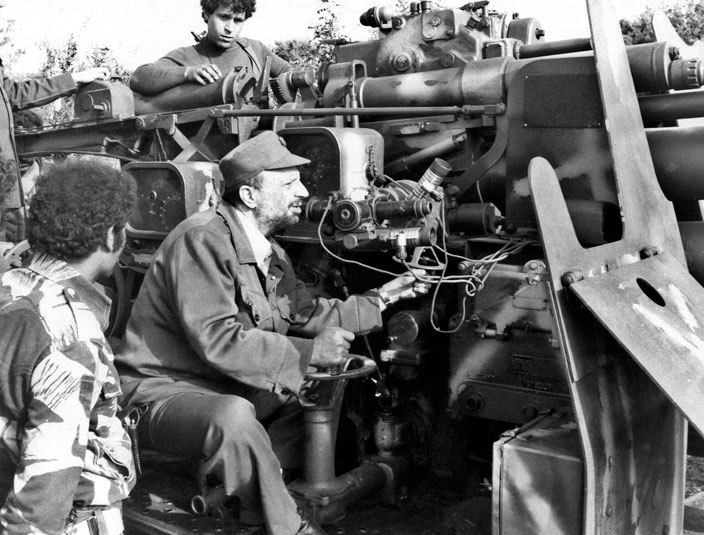
May 7, 1983
With hundreds of thousands of Palestinian refugees living in camps in Lebanon, Palestinian guerrilla groups begin making their way into Lebanon in the 1960s. They are interested in Southern Lebanon as a natural stronghold for militant groups looking for protection and recruits to fight against Israel. In 1969 the Cairo Agreement is brokered by Egyptian President Nasser between the commander of the Lebanese Army General Emile Boustany and PLO Chairman Yasser Arafat. The agreement gives PLO authority over the Palestinian Refugee camps in Lebanon as well as ostensible autonomy to PLO military factions operating in the south of the country. As a result of these agreements, the PLO, under the leadership of Arafat essentially establishes an autonomous Palestinian political entity within the state of Lebanon. This enables the PLO to build military bases in Lebanon and conduct attacks against Israel.
Subsequently, in 1970, King Hussein of Jordan expels all members of the PLO as a result of a bloody power struggle between Arafat and the Hashemite Kingdom. As a result of the expulsion of the PLO from Jordan, Lebanon further becomes a refuge for the PLO and the epicenter of Palestinian radicalism and armed struggle against Israel. On June 6, 1982, in response to prolonged Palestinian perpetrated guerilla attacks from Southern Lebanon, Israel initiates a full-scale invasion into Lebanon in an effort to wipe out PLO strongholds. The war, which lasts until 1985, takes place in an already politically fractured Lebanon, which has been in a state of civil war since 1975. The PLO, an active participant in the civil war, is not only fighting against other Lebanese groups and Israel, but also against rival Palestinian factions. These factions are increasingly challenging Arafat and the PLO’s self-proclaimed role as “the sole and legitimate representatives of the Palestinian people.”
On May 7, 1983, in the throes of war against Israel, five senior PLO officers, under the leadership of Col. Abu Musa, declare an armed revolt against military factions under Arafat’s leadership. At the time, Arafat is in exile with other PLO leaders in Tunis following the Israeli invasion (where they remained until the Oslo Accords of 1993). However, he still maintains control over military and political decision making. Abu Musa’s stated grievances relate to “[Arafat] neglecting the armed struggle against Israel in favor of negotiating with Jordan over how to further President Reagan’s initiative for a Middle East settlement.” They claim that Arafat was siding with an American peace plan that would not provide Palestinians with an independent state, but rather an entity within the West Bank that was part of a confederation with Jordan.
While this event highlights certain tensions within Palestinian leadership at the time, it did not amount to any regime change or shift in policies amongst Arafat and the other leaders of the PLO.
The photo shows PLO chairman Yasser Arafat in Lebanon before Israel’s 1982 invasion. Photo: Margarida Santos Lopes
